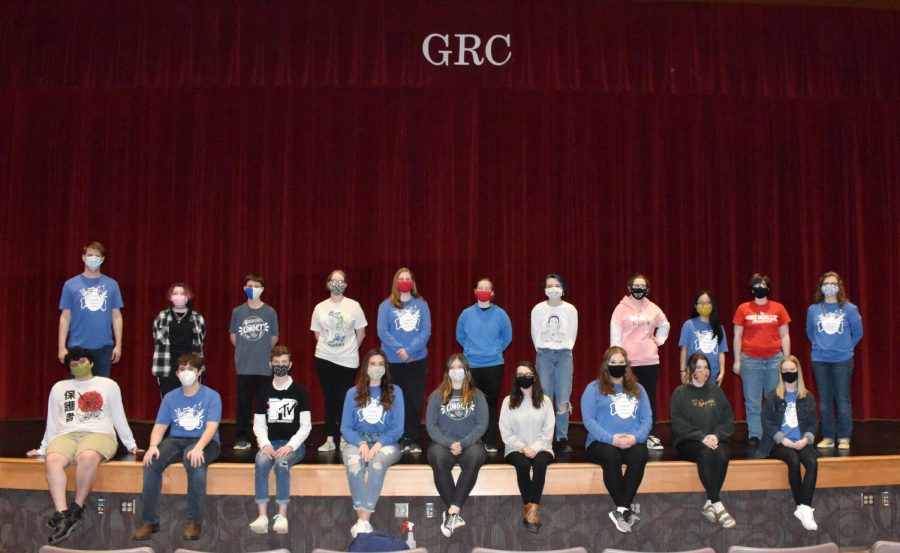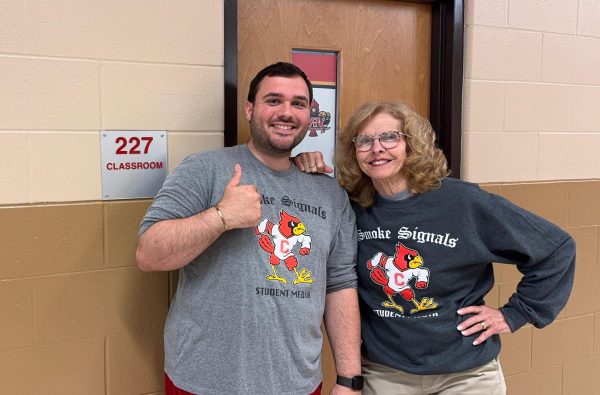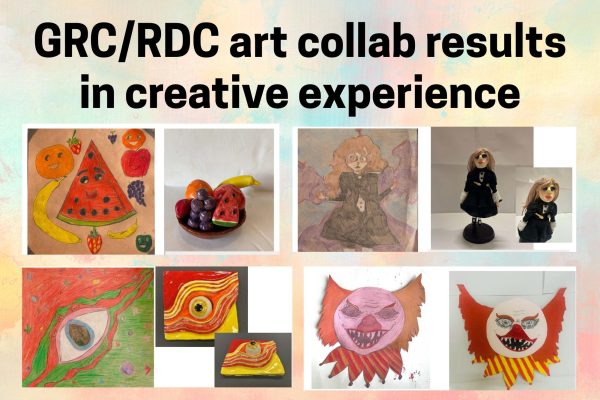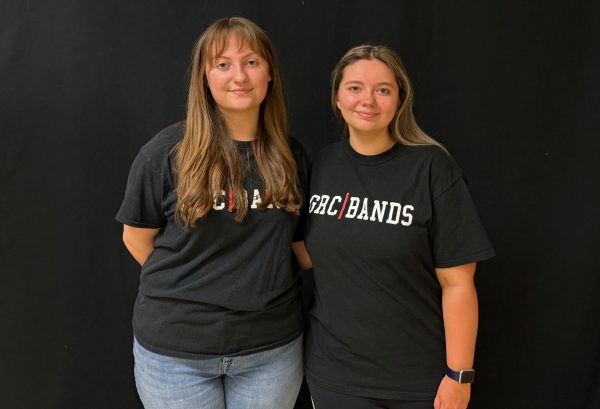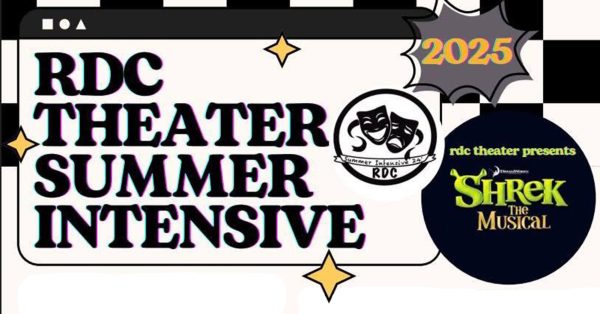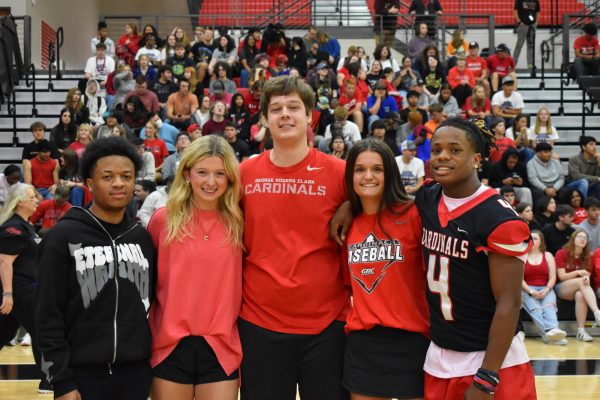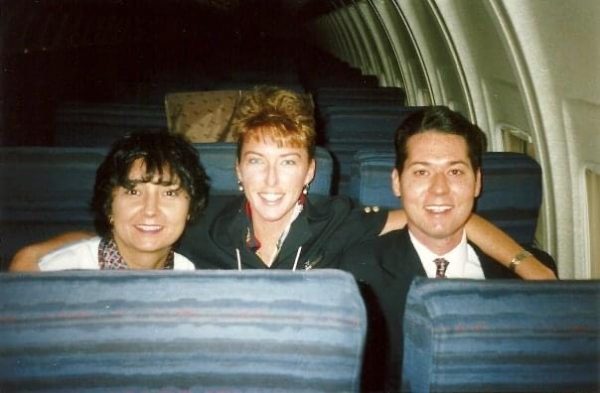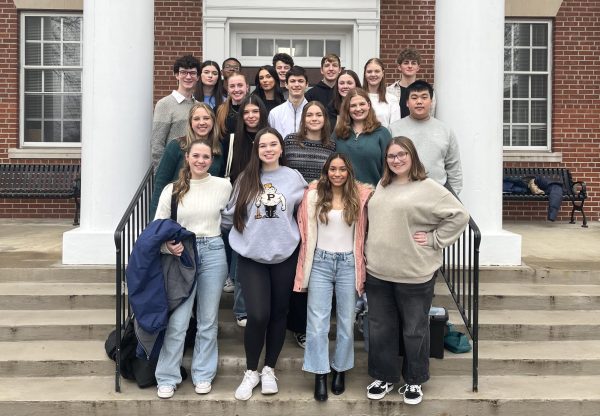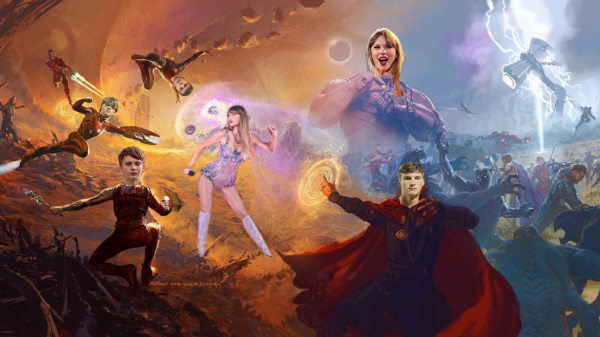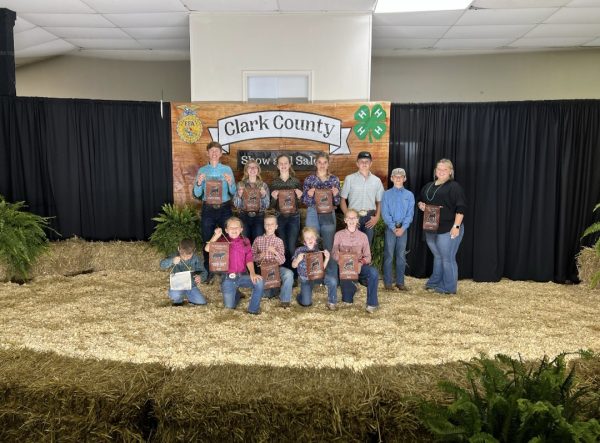GRC’s Fine Arts Cohort is making the most of the online experience
Cohort teachers share their experiences with online school in classes that are typically hands-on
GRC Fine Arts Cohort
When was the last time you went to a concert?
When was the last time you performed a song with someone or went to see a movie?
Art is something we usually experience in person, like these things.
For Cohort students at GRC, art is a huge part of their day, so this pandemic has really put a wrench in their regular schedule.
Yet, they still manage to express themselves and make their art through the computer screen.
The Cohort program at GRC has been an important part of the arts at the school for a while now. Their mission is to provide a high quality arts education to students pursuing a career in art. The high quality portion still remains true, even with an online curriculum.
We asked some of the Cohort teachers questions about what they have been doing this year so far.
The answers include Katherine Lowther, Fine Arts Cohort director/Cohort English teacher/Keyboarding teacher; Kris Olson, Choir teacher; and Brittani Fuller, Art teacher.
Q: Doing school through a computer can be challenging. What is one thing that has brought you joy while teaching online?
Lowther: In regular, in-person class, when I ask a question, we usually only have time for a few students to respond, which I hate, especially if it’s an opinion-based question… However, I require students to type into the chat, so we’re all able to see and respond to the entire class’s responses in a short time, which gives students more agency and voice.
Some students who are more introverted or prefer not to speak out in class have really done well in this type of interaction, and I’d like to find a way to continue offering a virtual platform during in-person discussions.
Another aspect of online teaching that brings me joy is when students turn on their cameras all at the same time and I can see their pets, their favorite items in their rooms, or even just their faces! We are able to get a glimpse into each others’ worlds in a more personal and concrete way than just speaking in abstract.
Olson: One thing that has brought me joy is getting to learn my students’ abilities more personally than I might otherwise, because so much of our work this year has involved submitting individual recordings to me.
When I see the notification that a student has submitted a recording, I become super excited and listen to it as soon as I can… Our students are experiencing a year they never have before, and they’re attending meets, working independently, learning new technologies, maintaining their mental and physical health, and keeping their heads up generally. Talk about impressive.
Fuller: I have enjoyed seeing the artwork that my students have made during this time, their creativity is what keeps me motivated and the reason I love my job so while many things have changed, that consistency has been refreshing.
Q: Art is very hands on, so I’m sure it has been very difficult. What is an accomplishment that you have made during your online teaching?
Lowther: Online teaching has forced me to become much more disciplined and focused than I normally am. Having taught for 17 years, I realize now that I perhaps relied too much on my experience to take me through the day.
Since I only have Cohort twice a week, now, I really have to make sure to plan ahead and stay on task, rather than following a variety of rabbit holes when we get distracted by an idea in class. I really appreciate learning how to use Google Classroom so I can plan ahead, share documents and videos, provide quick feedback, and not have to spend time worrying about killing trees at the copy machine.
But, my biggest personal accomplishment is learning how to make virtual choir videos for school, church, and my daughter’s arts program.
Olson: I guess my biggest personal accomplishment this year is simply adopting a healthy frame of mind about the situation, which has influenced my work.
I’ve had to learn how to be more creative, use new technology, seek out on-line resources, be honest with myself about what assignments are worth students’ effort, and really think hard about whether I’m connecting with my students…I’ve given myself more permission to experiment and screw up.
As a result, I actually feel that I’m doing some of my best, most inspired teaching right now, and I’m determined to keep up this frame of mind when we’re in-person.
Fuller: We were able to put together art materials packs to send home with students so they are able to complete their artworks and have a similar hands on experience to the ones they would have in the classroom. For some assignments students have been given the opportunity to use their imaginations and exercise their creative thinking skills by using materials they have available at home, sometimes nontraditional and unexpected, to create works of art.
Q: How do you bring the fun that comes with shows and rehearsals through a computer screen?
Lowther: In Cohort Drama/Dance, we all get on camera and do warm-ups together, practice choreography and acting techniques, and provide feedback for each other’s performances–basically what we would normally do in class.
Because we have a new student in the program who is an excellent dancer (shout out to Chloe Galloway), I’m working in more opportunities for movement, and also have her working on choreographing and recording a tutorial for us to use in our next Showcase.
While I do require students to have their cameras on during the majority of class so I can help adjust movement, body language, facial expressions, and so forth during virtual rehearsals, those who are not quite ready to share out can turn off their cameras and practice privately before getting on camera.
Students also have private coaching sessions with me–something else I truly appreciate about distance learning, as I don’t have to worry about monitoring the other students during those times–which allows them to experiment and make mistakes in their learning process without being self-conscious that others will see their works-in-progress.
All Cohort students are required to attend a number of arts events and participate in arts-related volunteer activities each semester.
Because of the Pandemic, many arts venues have put their work online, often free of charge, so students have enjoyed a variety of rich, high quality music, drama, dance, and visual arts experiences that would normally have been inaccessible without a trip and costly admission ticket.
Also, seeing what the students were able to accomplish for their volunteer activities while remaining socially distant or completely virtual was inspiring.
One of our freshman drama majors, Silas Coogle, created a flipbook to increase awareness for Down’s Syndrome, and also recorded a tutorial for special needs students to help them make their own flipbooks. This sort of cross-curricular thinking is at the core of Cohort, and the arts in general.
Olson: In the Cohort music class, we have focused on recording projects, to include collaborative and solo pieces. There’s a learning curve at first to putting together music videos, but once you have an idea of what you’re doing, it’s a very fun challenge.
This semester, the music class is focusing on composers and cultures that have often been dismissed in music education, so primarily women and people of color.
The students will be studying and performing such music, but along the way we also discuss articles and videos that address how music has traditionally been taught in schools.
It can be heavy stuff, and our music students have been killing it, jumping right into everything. I tell them every day how much their openness to the subject matter has inspired me, and I mean it.
I try to ensure our meetings have a variety of activities: Warm-ups, discussions, videos, written work, and more. I make sure to say hello to every student who logs on and to ask how they’re doing before we begin.
We sometimes have guest presenters and clinicians, which is always a lot of fun and keeps things fresh. Having a sense of humor helps keep things fun too. I am constantly looking to see whether people are laughing in our meetings. The ones who laugh the hardest at my jokes get an A.
View Song of Healing by the Cohort music students.
Fuller: Cohort pieced together a virtual showcase which premiered on YouTube and presented students’ artwork that has been created thus far.
In addition, students were able to record a voice over of their artist statements to share their vision behind their work with the audience.
While in-person art galleries are ideal and seem much more tangible, the students were able to capture and hold their audience’s undivided attention which, I believe, brought the presentation of student work to a new level. In fact, this method could benefit the artists in future productions and presentations.
Q: How can we get involved with what the Cohort program is creating this semester?
Lowther: Thanks to the magic of technology, the Fine Arts Cohort was able to put out our first virtual Showcase in December!
The music majors performed two songs via virtual choir, the artists created works centered around our theme of “We Wear the Mask” (a poem by Paul Lawrence Dunbar) and shared their artist’s statements, and the drama/dance majors performed their final monologues as well as a virtual “choir” dance to “We’re All in This Together” from High School Musical.
We debuted the video as a YouTube event, and were able to share our art with more people than ever before!
Anyone can enjoy the 35-minute show HERE. We plan to have another such showcase in the Spring, and are looking for ways that we can continue sharing the students’ work virtually so their friends and family can enjoy it, even if they are not able to attend in person (once it’s safe to have live, full performances again).
Many of the Cohort students also participated in the online virtual musical, Mystery of Custodia, sponsored by GRC’s chapter of the International Thespians Society. This will debut on YouTube live in the near future as well.
In conjunction with the GRC Thespians Society, we are planning a virtual performance festival in which any student throughout the school can participate.
The Thespians leadership team is working on that opportunity, ways to increase school-wide membership, and a reveal event for the Fall 2021 school play and Spring 2022 musical (everyone is encouraged to audition for both!)!
Applications for the GRC Fine Arts Cohort are available HERE.
Auditions will be virtual or pre-recorded, as they were last year, due to the Pandemic. Mr. Olson, Ms. Fuller, and I encourage all students interested in experiencing and creating art, music, drama, and dance in a creative, unique environment to apply!
The arts have engaged, inspired, and even soothed us during the uncertainty of the Pandemic, and we hope that many more students will join us in our endeavor to bring more of that beauty to the world each year.
Fine Arts Department Performances (Pandemic version!)
- Band Winter Showcase
- Cohort Winter Showcase
- Intro to Theatre Winter Showcase
- Cohort Drama/Dance “We Wear The Mask” Interpretation
- Cohort Music “We Wear The Mask” Interpretation
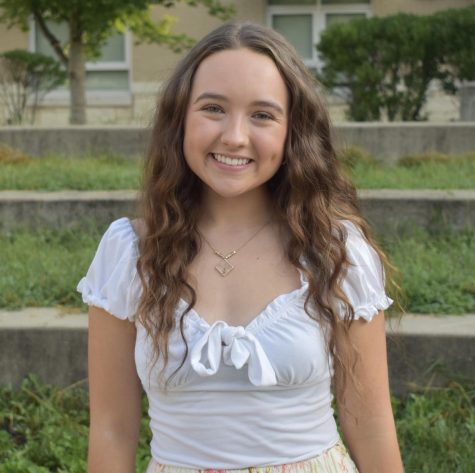
Ella is most afraid of opossums. She thinks Whales are better than Goldfish because they have more flavor and they are just superior. If she were a type of shoe, she would be Gogo Boots because she is...
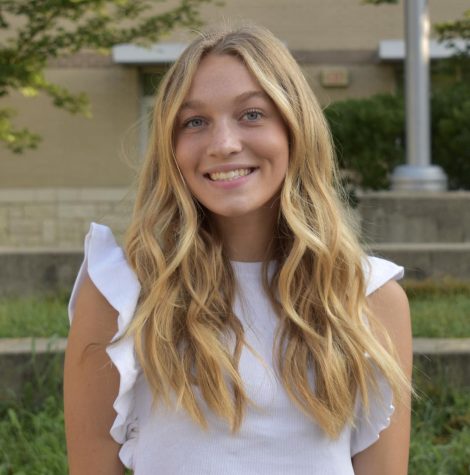
Aniston is most afraid of big bodies of water. She thinks Goldfish are better than Whales and she thinks it depends what one you grew up eating. If she were a type of shoes, she'd be a white pair of sneakers....


